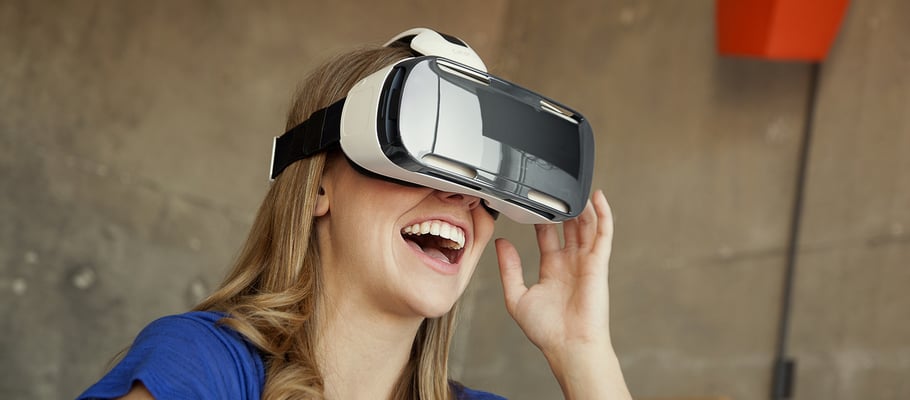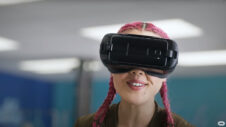Virtual reality is the next big thing. The VR market already amounts to $10 billion including hardware and software, and it is expected to grow seven fold in the next five years. No wonder then that tech giants like Facebook, Google, Samsung, and LG are pouring money into the VR market. The Gear VR was jointly developed by Samsung and Facebook-owned Oculus.
Samsung and LG are now competing to develop better displays for VR headsets because current VR displays are not providing a satisfactory experience. VR headsets that are currently available in the market can cause headache and dizziness. Experts claim that a good VR experience needs displays with a pixel density of more than 1500 ppi.
Apart from display quality and sharpness, a satisfying VR experience also needs faster processors to process visual data quickly without leaving an afterimage. To get rid of the afterimage problem, it is expected that smartphones twice as powerful as current generation ones are needed.
Samsung is trying to improve VR display quality by drawing more precise circuits on glass or plastic circuit boards. On the other hand, LG is experimenting with more expensive silicon circuit boards to improve image quality. Both the companies are considering investments to set up separate VR display production lines.
Samsung had bundled the Gear VR with all Galaxy S7 and Galaxy S7 edge preorders to improve the adoption of VR headsets. Its South Korean rival LG also has a VR headset on the offering that works with the LG G5, but its image quality is said to be nowhere as good as that of the Gear VR.





